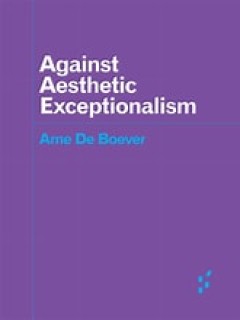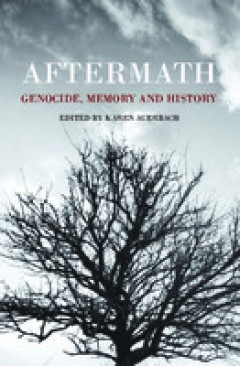Filter by

Advances in Artificial Intelligence Methods Applications in Industrial Contro…
The motivation for the present reprint is to provide an overview of novel applications of AI methods to industrial control systems by means of selected best practices in highlighting how such methodologies can be used to improve the production systems self-learning capacities, their overall performance, the related process and product quality, the optimal use of resources and the industrial sys…
- Edition
- -
- ISBN/ISSN
- 9783036568096
- Collation
- 150 hlm; ill., lamp.,
- Series Title
- -
- Call Number
- -

Advances in Applied Marine Sciences and Engineering
In recent years, applied marine sciences and engineering has attracted worldwide attention, which includes basic theoretical research and applied research on marine hydrology, meteorology, physics and geology. Besides, new viewpoints, new developments, new theories, new methods, new applications and new experiences of investigation, research and management in the marine environment and big data…
- Edition
- -
- ISBN/ISSN
- 9783036582092
- Collation
- 288 hlm; ill., lamp.,
- Series Title
- -
- Call Number
- -

Advances in Antiferromagnetic Spintronics
Antiferromagnetic spintronics is an emerging topic in spintronics that is attracting interest due to its wide range of advantages, including terahertz operation, memory without stray fields, and highly efficient spin generation. The discussion of this topic covers aspects ranging from the development of new antiferromagnetic materials to the applications of these materials in devices. Tradition…
- Edition
- -
- ISBN/ISSN
- 9783036537504
- Collation
- 82 hlm; ill., lamp.,
- Series Title
- -
- Call Number
- -
Advances in Angle-Only Filtering and Tracking in Two and Three Dimensions
Two-dimensional bearing-only filtering (BOF) arises in many real-world tracking problems, including underwater tracking using a passive sonar, aircraft surveillance using a passive radar, navigation of a robot using a passive sonar, and undersea exploration of natural resources using sonar. BOF using a single sensor is also a challenging nonlinear filtering problem due to poor observability and…
- Edition
- -
- ISBN/ISSN
- 9783036568553
- Collation
- 266 hlm; ill., lamp.,
- Series Title
- -
- Call Number
- -

Advances and Trends in Mathematical Modelling, Control and Identification of …
This book introduces novel results on mathematical modelling, parameter identification, and automatic control for a wide range of applications of mechanical, electric, and mechatronic systems, where undesirable oscillations or vibrations are manifested. The six chapters of the book written by experts from international scientific community cover a wide range of interesting research topics relat…
- Edition
- -
- ISBN/ISSN
- 9783036539508
- Collation
- 132 hlm; ill., lamp.,
- Series Title
- -
- Call Number
- -

Against Aesthetic Exceptionalism
Reconsiders exceptionalism between aesthetics and politics Here, Arne De Boever proposes the notion of aesthetic exceptionalism to describe the widespread belief that art and artists are exceptional. Against Aesthetic Exceptionalism challenges that belief by focusing on the sovereign artist as genius, as well as the original artwork as the foundation of the art market. Engaging with sculpture, …
- Edition
- -
- ISBN/ISSN
- 9781452962450
- Collation
- 2019
- Series Title
- Forerunners: Ideas First
- Call Number
- -

Aftermath
Aftermath: Genocide, Memory and History examines how genocide is remembered and represented in both popular and scholarly memory, integrating scholarship on the Holocaust with the study of other genocides through a comparative framework. Scholars from a range of disciplines re-evaluate narratives of past conflict to explore how memory of genocide is mobilised in the aftermath, tracing the devel…
- Edition
- -
- ISBN/ISSN
- -
- Collation
- -
- Series Title
- History
- Call Number
- -

Afterlives of war
Afterlives of war documents the lives and historical pursuits of the generations who grew up in Australia, Britain and Germany after the First World War. Although they were not direct witnesses to the conflict, they experienced its effects from their earliest years. Based on ninety oral history interviews and observation during the First World War Centenary, this pioneering study reveals the co…
- Edition
- -
- ISBN/ISSN
- -
- Collation
- -
- Series Title
- -
- Call Number
- -

Afterlives of the Garden
The collection of essays in this volume offers fresh insights into varied modalities of reception of Epicurean thought among Roman authors of the late Republican and Imperial eras. Its generic purview encompasses prose as well as poetic texts by both minor and major writers in the Latin literary canon, including the anonymous poems, Ciris and Aetna, and an elegy from the Tibullan corpus by the …
- Edition
- Sergio Yona
- ISBN/ISSN
- 9783111029733
- Collation
- 190
- Series Title
- CICERO
- Call Number
- -

Activist New York
Follows centuries of New York activism to reveal the city as a globally influential machine for social change Activist New York surveys New York City’s long history of social activism from the 1650’s to the 2010’s. Bringing these passionate histories alive, Activist New York is a visual exploration of these movements, serving as a companion book to the highly-praised Museum of the City of…
- Edition
- -
- ISBN/ISSN
- 9781479828654
- Collation
- oer.unej.ac.id
- Series Title
- -
- Call Number
- -
 Computer Science, Information & General Works
Computer Science, Information & General Works  Philosophy & Psychology
Philosophy & Psychology  Religion
Religion  Social Sciences
Social Sciences  Language
Language  Pure Science
Pure Science  Applied Sciences
Applied Sciences  Art & Recreation
Art & Recreation  Literature
Literature  History & Geography
History & Geography